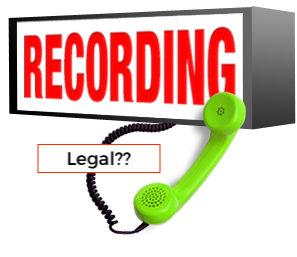
Michael Cohen, President Trumps personal attorney, recorded phone calls with his client.
Engel & Martin Partner Mary Martin has been asked, “Is this legal?” Her response:
In Ohio, as in the state of New York, as long as one party knows that they are being recorded, the recording is not illegal. In other words, not everyone being recorded needs to know. So, the potential argument that Mr. Trump did not know he was being recorded is really a non-issue. As long as Mr. Cohen knew they were being recorded, this was legal.
The more interesting element of the story from my perspective is the recording of conversations with clients. Most attorneys, I believe, have thought about recording conversations with clients. One of the reasons for this is to protect ourselves from malpractice lawsuits, where a client might argue that the attorney told them something incorrect and they were harmed as a result. Some attorneys record their clients because of the sheer volume of their caseload and it helps to keep track of what the individual case is about.

Another reason for recording might be to alleviate arguments in the future over what was said. For example, I had a client in a criminal case that I spoke to in length about a potential plea agreement and the rights that the person was giving up by pleading and the ramifications of the plea. The discussion was pretty routine from my perspective and one that I’ve had many times with individuals. A week later, at the plea, the client indicated that they didn’t know why we were in court, didn’t know what the plea offer was, didn’t know the rights they were giving up, and didn’t know the ramifications. At that point, I would have loved to have played back the forty-five-minute-long conversation and question and answer session we had had.
However, the decision to record client calls isn’t about being right or proving another person wrong. And it isn’t about whether this is legal.
What is more important is keeping the attorney-client relationship and protecting the confidentiality of our clients. People go to attorneys and share their most intimate secrets. This is important, not just because attorneys are sounding boards and counselors, but because we need to have our clients be open and honest for us so we can do our jobs and represent our clients to the best of our abilities. If we don’t have this confidentiality we lose something in our relationships with our clients. In addition, our clients lose their willingness to be totally honest with us. The poet George Herbert famously quoted, “Deceive not they physician, confessor, nor lawyer”.
So after much thought and debate, our firm will not be recording conversations with clients. I want good relationships with my clients and I want them to be open and honest with me so I can effectively represent them.
